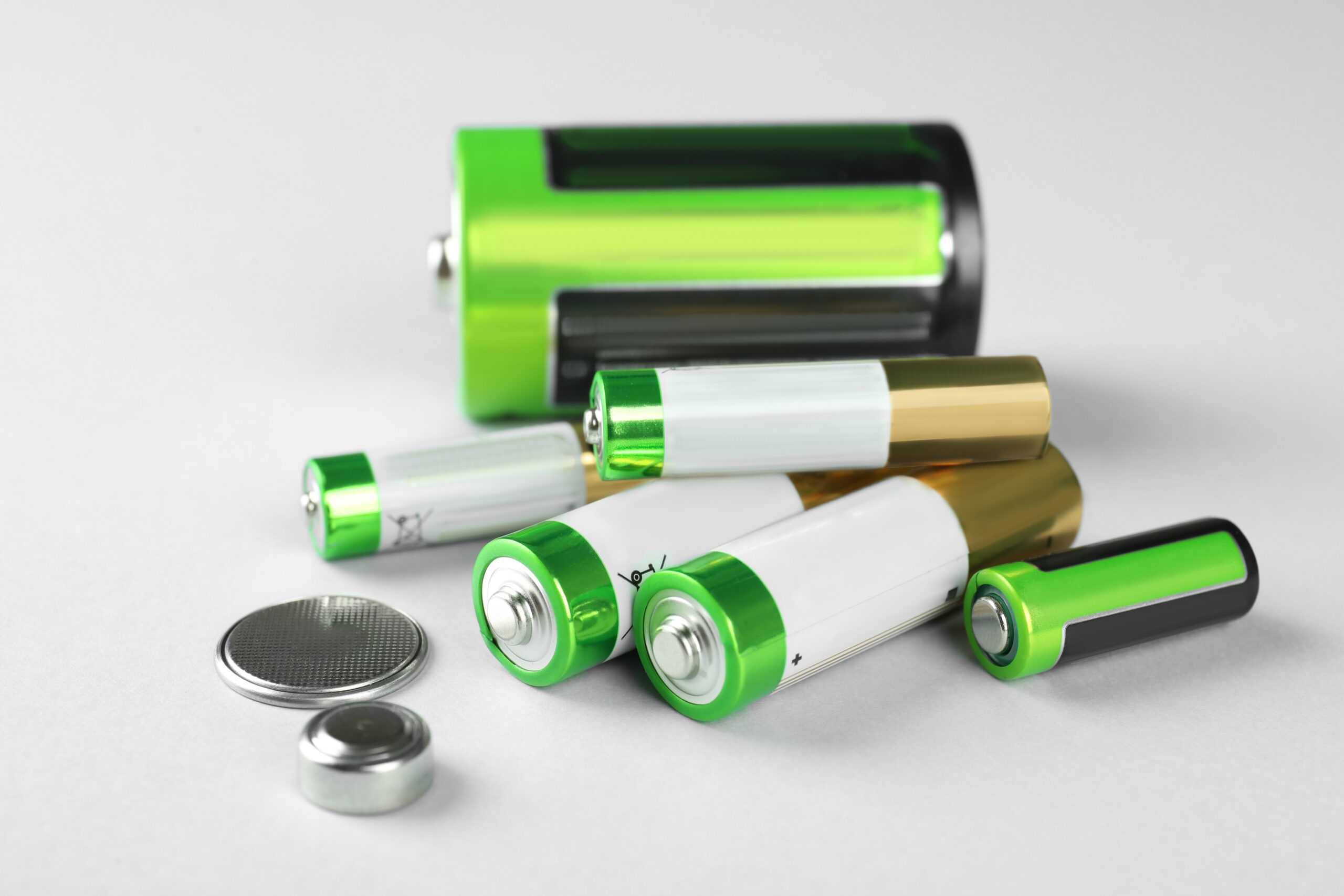
What batteries can be recycled?
Recycle Your Batteries, Canada! manages the collection and recycling of single-use and rechargeable dry-cell household batteries (weighing up to 5 kg each). This includes e-mobility batteries used on devices such as e-bikes and e-scooters.
Not sure what type of batteries you have? Continue reading to learn more.

Single-use batteries
What are they?
Also called primary batteries, or dry-cell single-use batteries, these are common household batteries that can’t be recharged and need to be replaced when they lose their charge.
Most commonly found in:
Flashlights, toys, tools, watches, and household safety devices like fire alarms and CO (Carbon Monoxide) detectors.
Common types:
A, AA, AAA, C, D, 9V, and button (coin) cell.
Typically include Alkaline, Zinc-Carbon and Lithium Primary.

Rechargeable batteries
What are they?
Also called secondary cell, or storage batteries, rechargeable batteries can, of course, be recharged over and over, but they lose capacity over time and just like their single-use counterparts, will have to be replaced.
Most commonly found in:
Cordless power tools, cordless phones, and devices like cameras.
Common types:
A, AA, AAA, C, D, 9V, button cells, as well as large rechargeable batteries weighing less than 5 kilograms.
Typically include Lithium-Ion, Nickel Cadmium, Nickel Metal Hydride, and Small Sealed Lead Acid* (SSLA).
*Note: SSLA batteries are not accepted in Saskatchewan.

E-Mobility batteries
Electric bicycles (e-bikes) and scooters (e-scooters) are becoming more popular all the time, but at end of life, e-mobility batteries need to be disposed of properly.
Batteries for e-mobility devices can be dropped off at select locations. E-bike retailers often offer e-bike battery recycling as well.
Use our locator tool and select “E-Mobility Batteries” under the search filter to find a location near you.

Complete e-bikes with their batteries
End-of-life e-bikes need special care to ensure safe disposal, including both the battery and the bike itself.
In British Columbia, e-bikes from select brands can be picked up by request through our BC e-transport recycling program.
Explore our full program and request a pick-up today.

Environmental impact
Household battery recycling is increasingly recognized as a crucial part of Canada’s net-zero transition and plays a key role in reducing potentially hazardous waste and protecting the environment.
Recycling batteries is essential, as the chemical and metal components may harm the environment if they’re thrown away and end up in landfills.
By properly recycling household batteries, Canadians can help reuse these components, reduce the need for new raw materials, and help build a strong circular economy.



